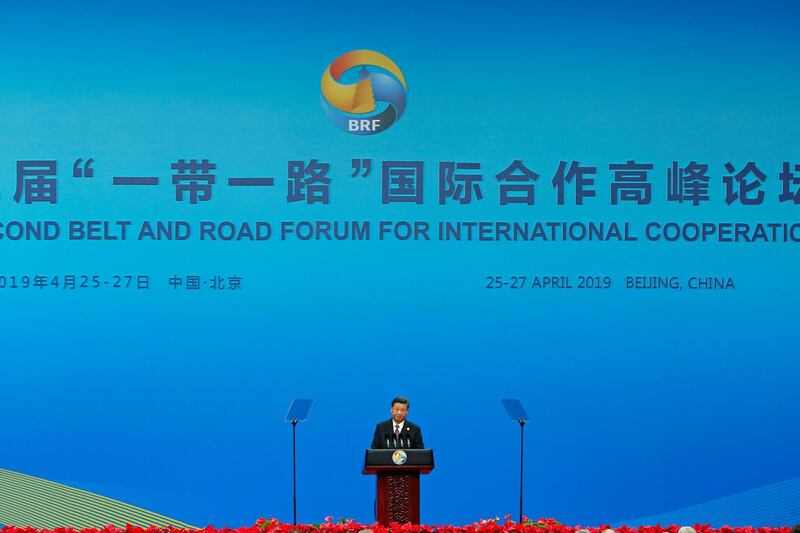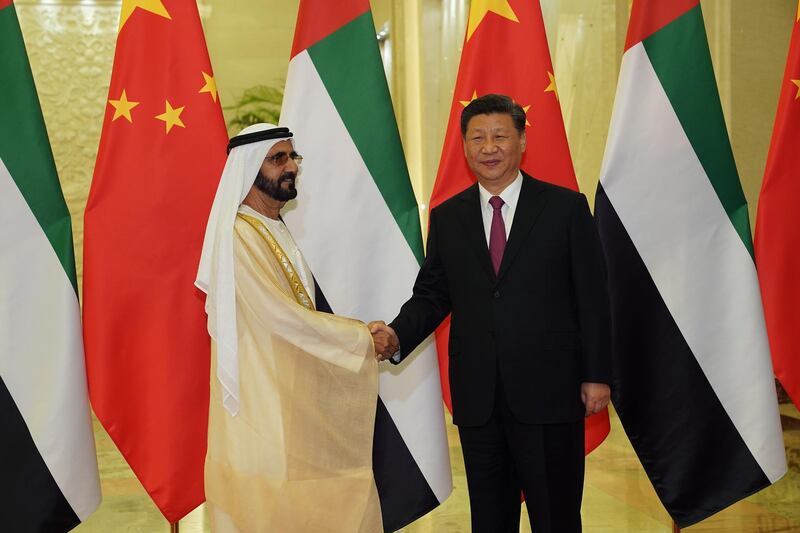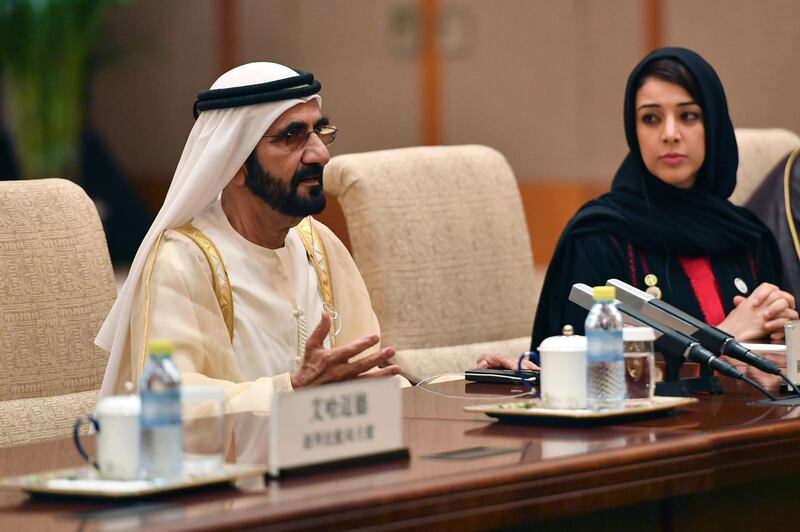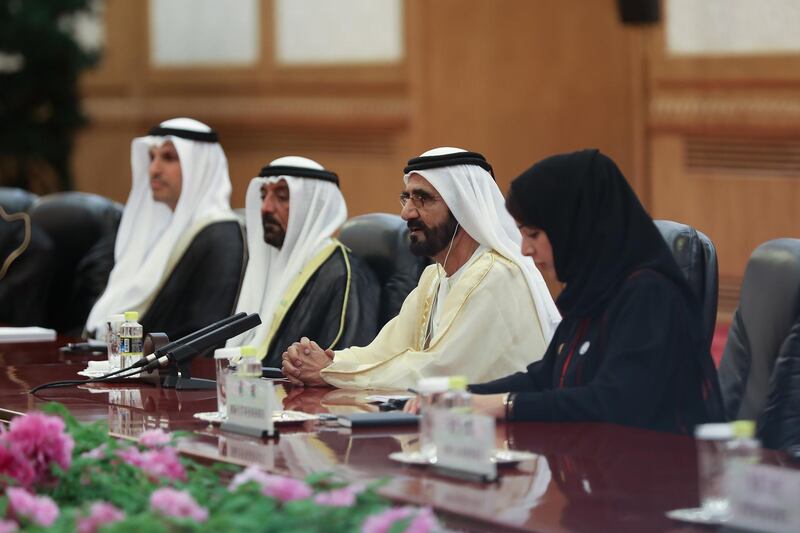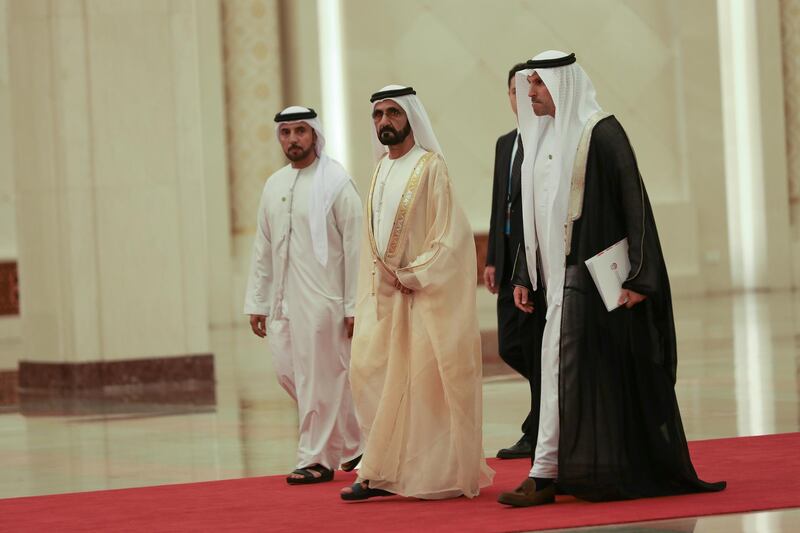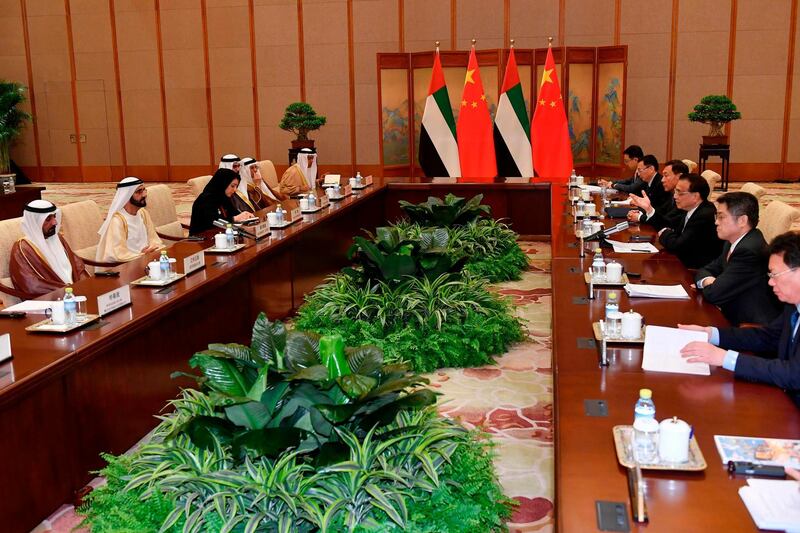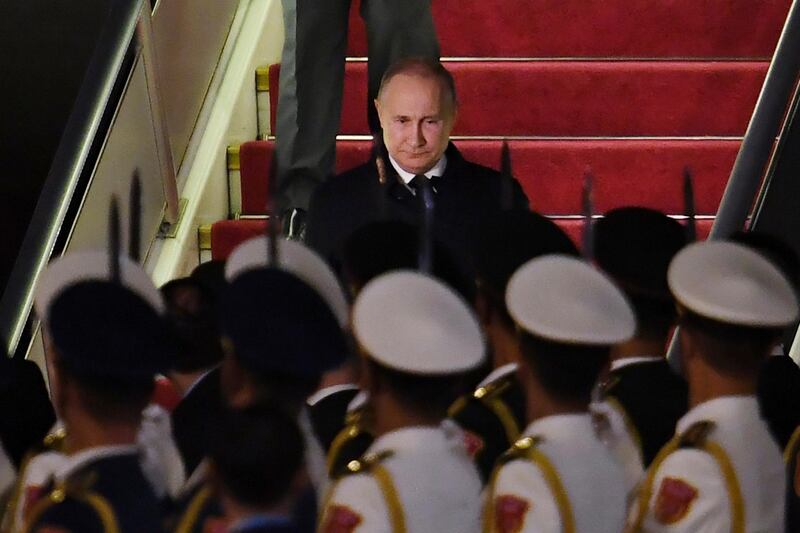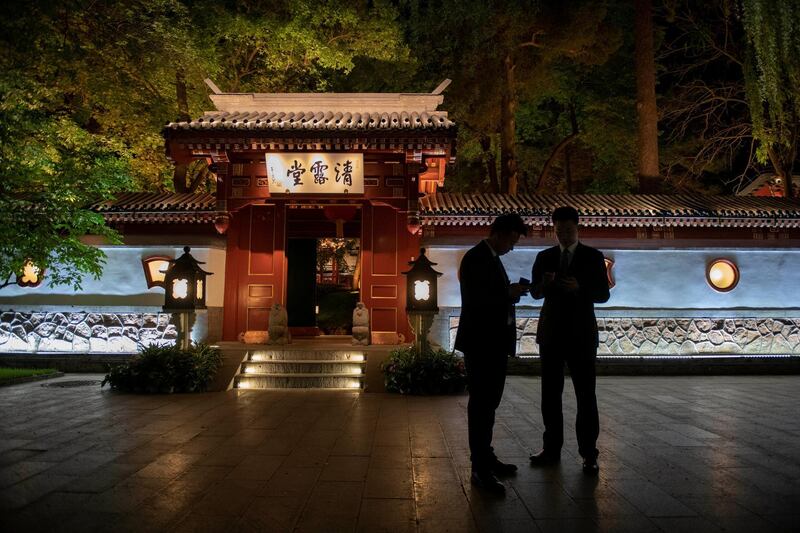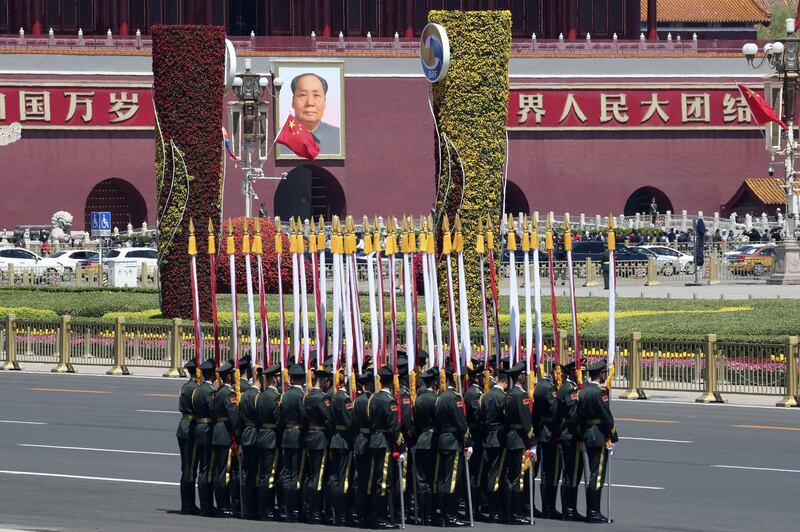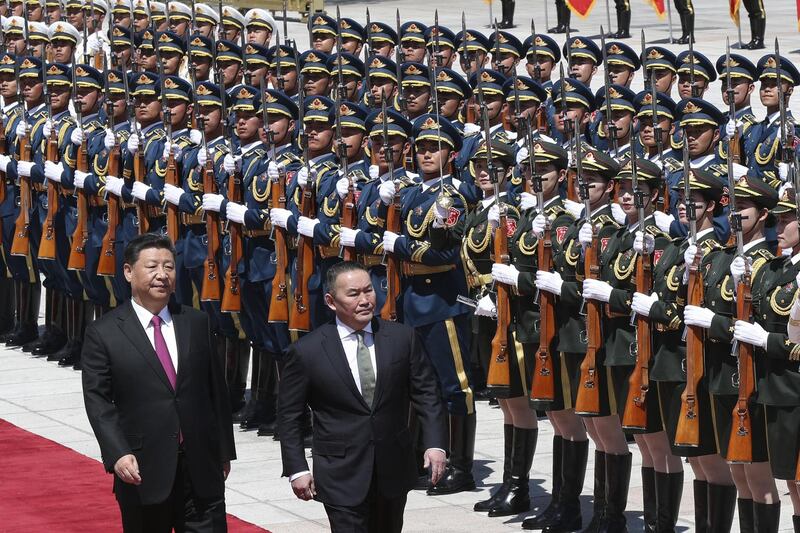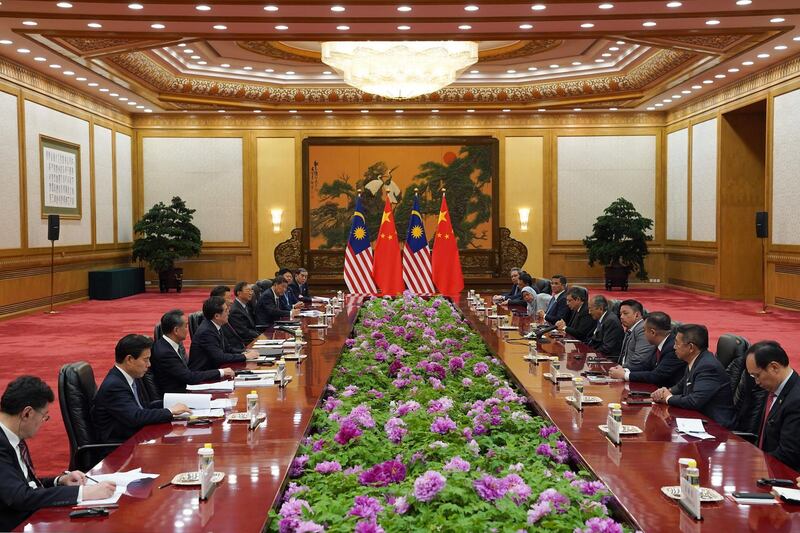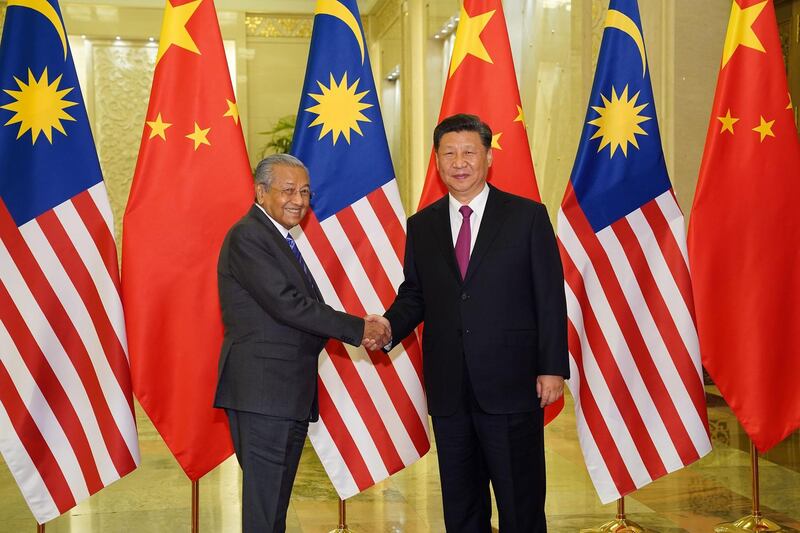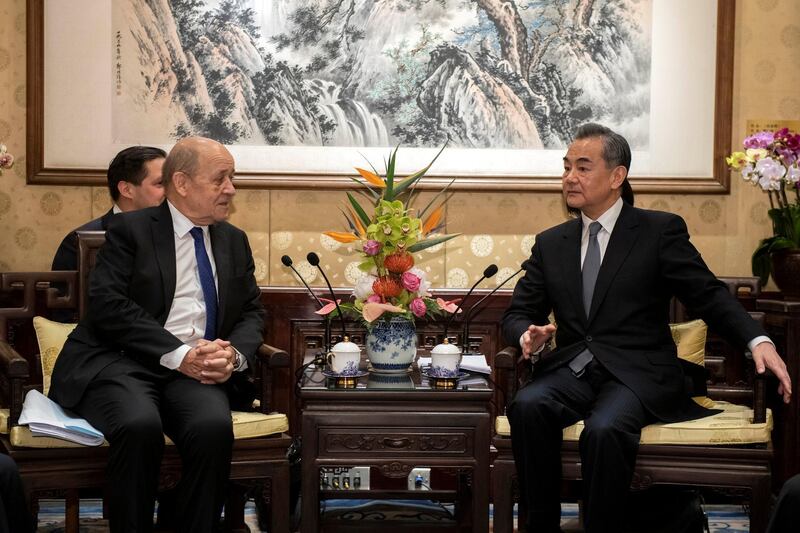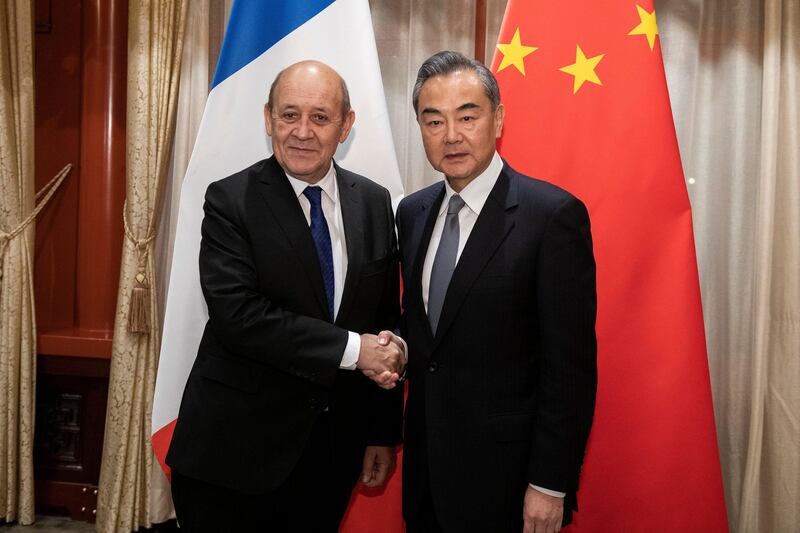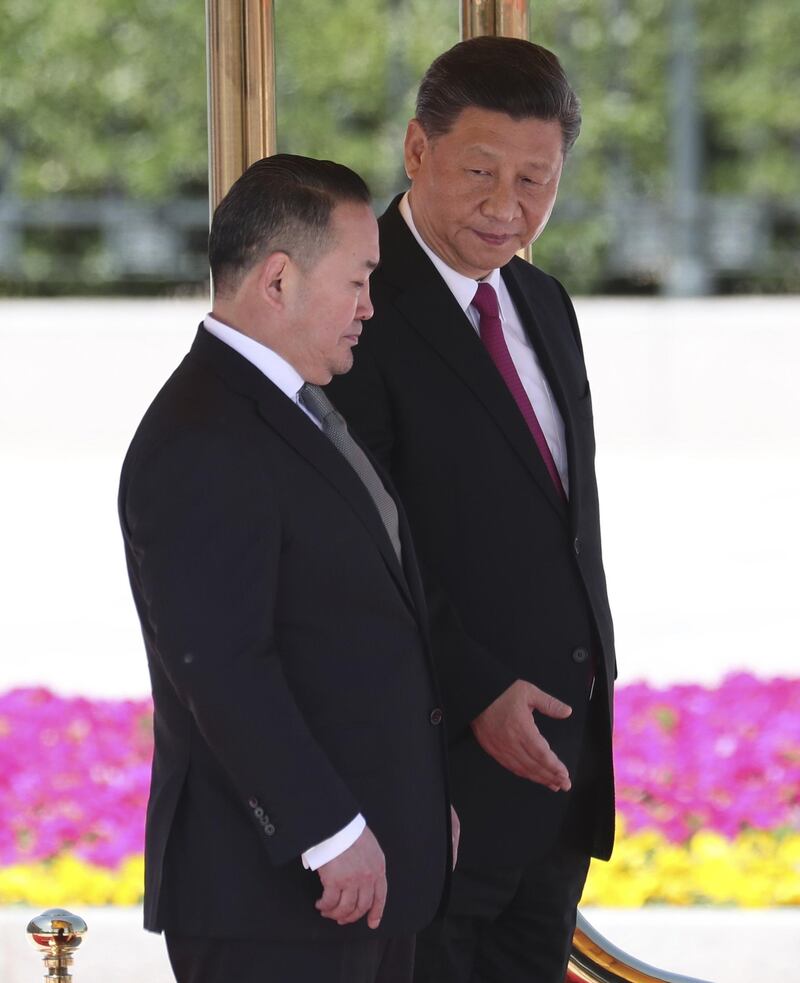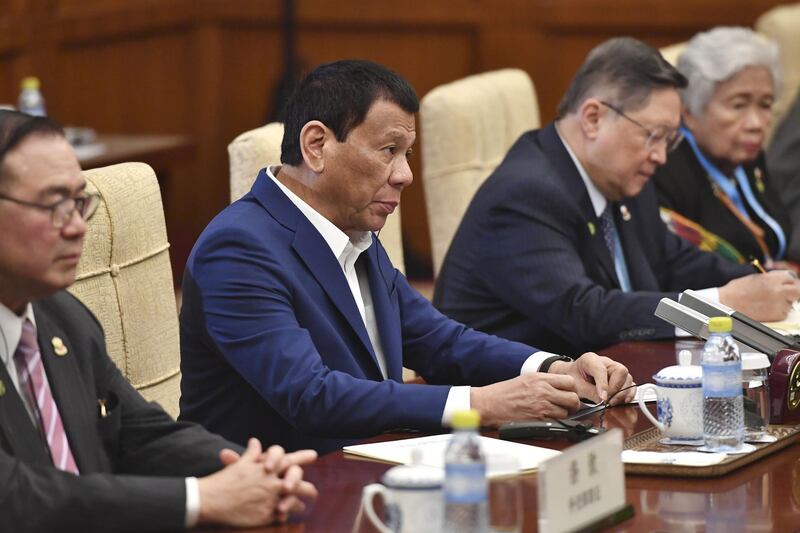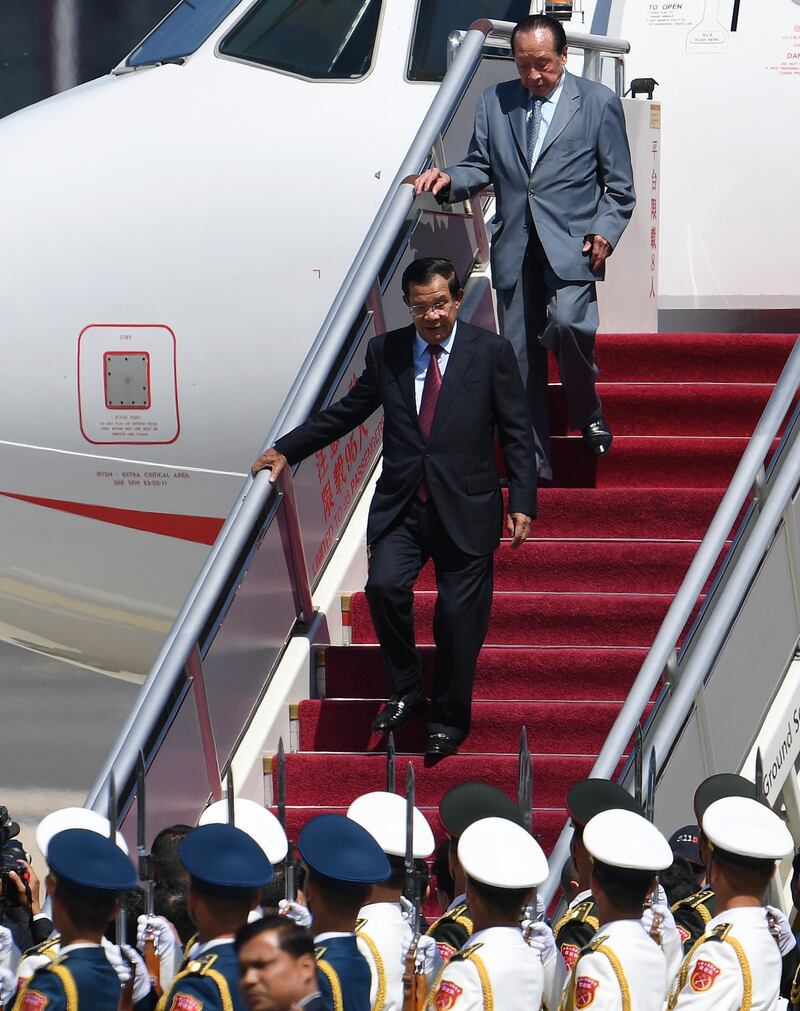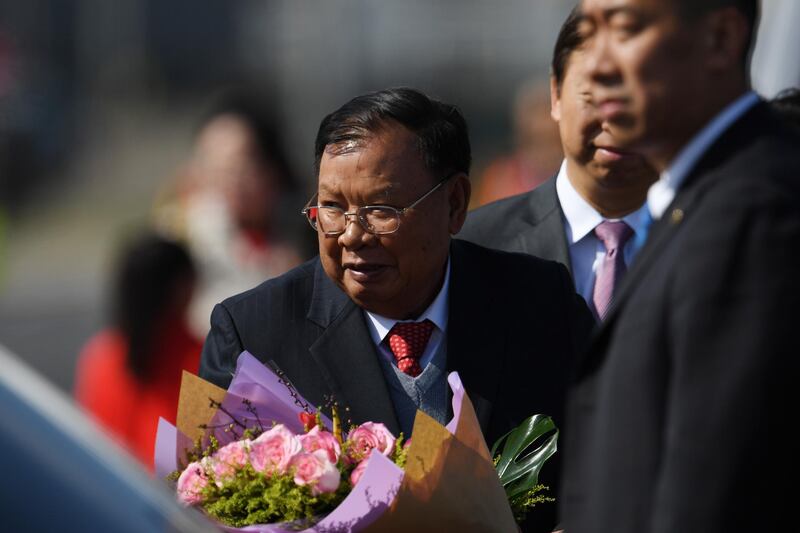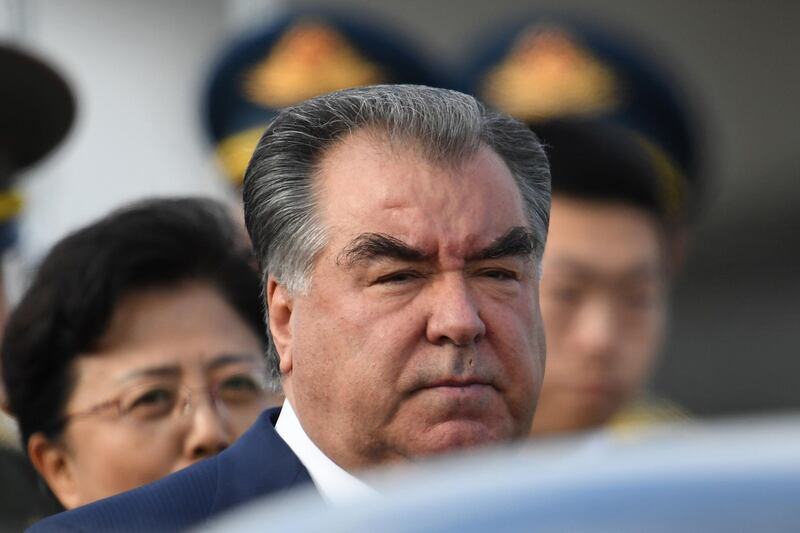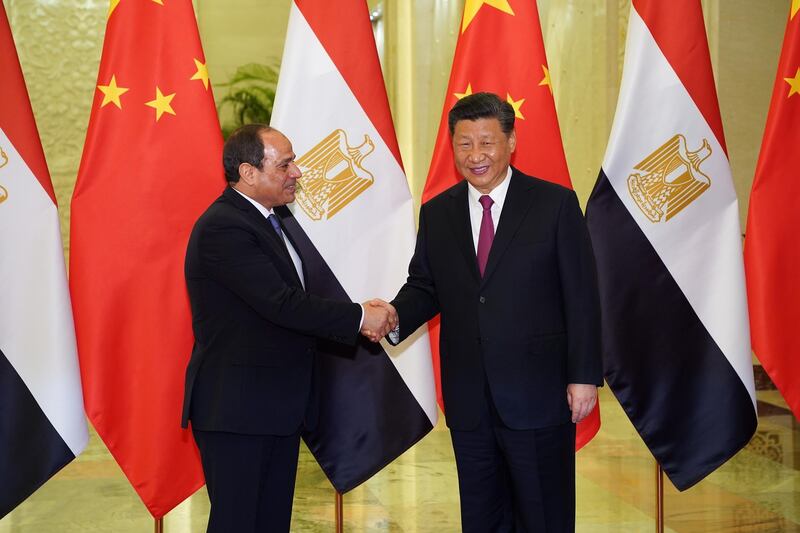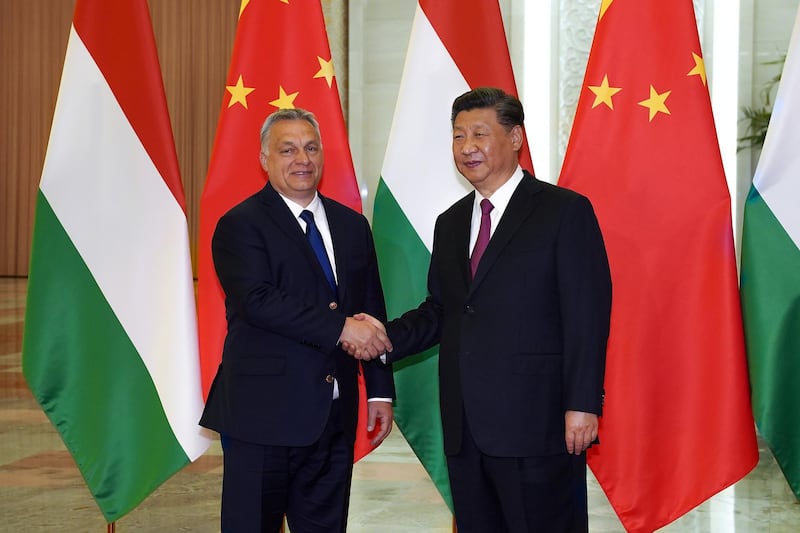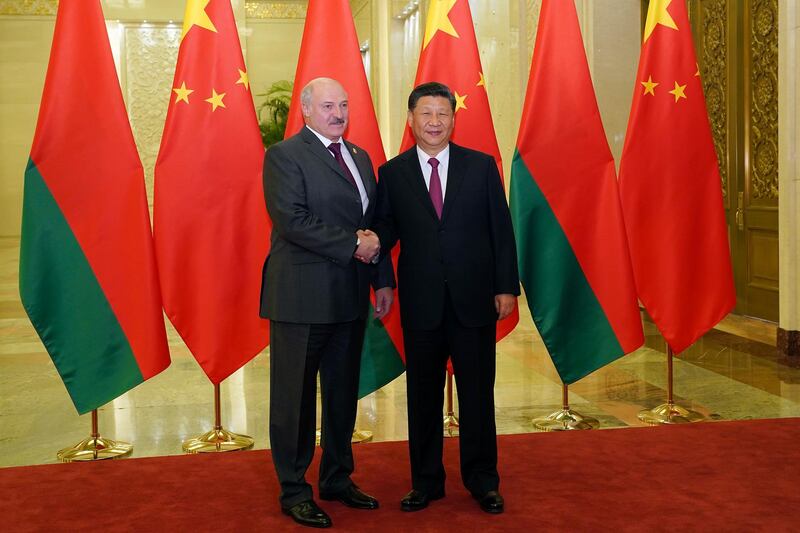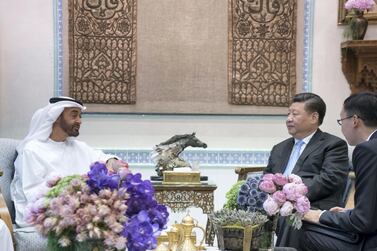China's President Xi Jinping promised on Friday to promote high financial standards for his country's Belt and Road initiative to expand global trade, adding that the massive infrastructure development plan should result in "high-quality" growth for everyone.
Beijing wants "open, green and clean co-operation" with "zero tolerance for corruption", Mr Xi said at the opening of a three-day Belt and Road forum that is being attended by leaders of 37 countries. The UAE delegation is led by Sheikh Mohammed bin Rashid, Vice President and Ruler of Dubai.
Developing countries welcome the Belt and Road initiative to expand trade by building roads, ports and other facilities across an arc of countries from Asia through Africa and the Middle East to Europe. Most of the projects are built by Chinese state-owned companies and are paid for with loans from government banks at commercial interest rates, fuelling accusations that most of the benefits flowed to China and that costs were too high, pushing some countries into a debt trap.
Mr Xi did not directly address such complaints but, in a nod to the concerns over loans, said: "We also need to ensure the commercial and fiscal sustainability of all projects so that they will achieve the intended goals as planned."
Unlike the first Belt and Road forum in 2017, where Mr Xi said Chinese banks would lend 380 billion yuan (Dh207bn) to support the plan, he did not give a figure for new financing support.
Mr Xi's initiative, launched in 2013, is fuelling political tension with the United States, Russia, Japan and India. They worry Beijing is trying to expand its strategic influence at their expense by building a trade and political network centred on China.
Despite that, the number of governments that have signed agreements to support Belt and Road has risen to 115 from 64 in 2013, China says. In March, Italy became the first member of the Group of Seven major economies to sign up.
Mr Xi's government is trying to revive the initiative's momentum after the number of new projects plunged last year. That came after Chinese officials said state-owned banks would step up scrutiny of borrowers.
China's president tried to allay complaints about lack of economic benefits and Beijing's growing power, saying the Belt and Road is "not an exclusive club" and promotes "common development and prosperity".
Mr Xi also appeared to be trying to dispel worries about possible corruption, environmental damage and other problems by promising Belt and Road will embrace international standards for project development, purchasing and operations.
He noted China issued guidelines on Thursday for assessing debt risks to borrowers. The Ministry of Finance said the "debt sustainability guidelines" were based on the standards of the International Monetary Fund and other international institutions.
Among other leaders attending the summit at a Beijing conference centre were President Vladimir Putin of Russia, Prime Minister Imran Khan of Pakistan, and Italian Prime Minister Giuseppe Conte of Italy, Prime Minister Abiy Ahmed of Ethiopia and Aung San Suu Kyi of Myanmar.
Sheikh Mohammed met Mr Xi on Thursday and reaffirmed the UAE’s commitment to helping build the “next phase for the global economy”.
The UAE has been an active player in the Belt and Road project, using its infrastructure to create a centre for trade to the region and as a gateway to Africa and the wider Middle East.
Sheikh Mohammed also met Chinese Premier Li Keqiang to discuss investment opportunities from the initiative and development projects in culture, tourism, education and the economy.
Minister of State for Foreign Affairs Dr Anwar Gargash said the UAE's participation in the Belt and Road forum showed its "firm conviction that our economic and development success is based on communication, co-operation and the exchange of experiences".
"We carry a model of successful Arab experience and seek to develop and modernise it," Dr Gargash said in a tweet on Friday.
الحضور والمشاركة الإماراتية في المنتدى الثاني لمبادرة الحزام والطريق وعلى هذا المستوى العالي يمثل قناعة راسخة بأن نجاحنا الاقتصادي والتنموي أساسه التواصل والتعاون وتبادل الخبرات والتجارب، نحمل معنا نموذج تجربة عربية ناجحة ونسعى إلى تطويرها وتحديثها. pic.twitter.com/AgRDHLjJJl
— د. أنور قرقاش (@AnwarGargash) April 26, 2019
China wants to expand the scope of its initiative by encouraging co-operation on health, water resources, agriculture and technology, Mr Xi said on Friday. He promised scholarships for students from Belt and Road countries.
Chinese lenders have provided $440 billion (Dh1.6 trillion) in financing, the country's central bank governor, Yi Gang, said on Thursday. He gave no details of how much has been repaid or how much might be at risk of possible default.
In addition, some 500 billion yuan (Dh275 billion) has been raised in Chinese bond markets, according to Mr Yi.
The Chinese debt guidelines are intended to "prevent and solve debt problems," Finance Minister Liu Kun said Thursday. Countries would be classified as low, medium or high risk borrowers based on economic output per person, economic growth and other factors.
Other governments including the United States and Japan also finance construction in a region the Asia Development Bank says needs $26 trillion of investment through 2030 to keep economic growth strong.
